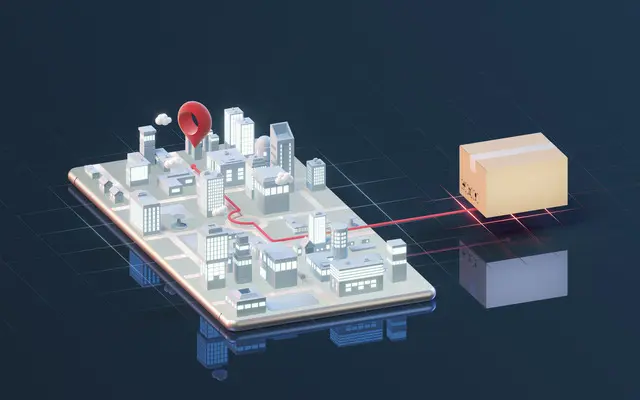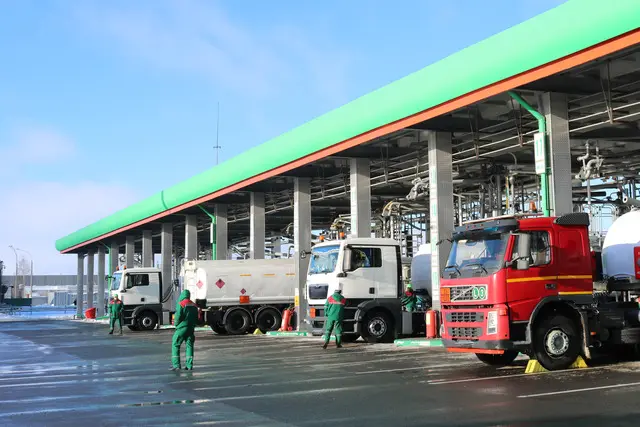Revolutionizing Shipment Tracking with Automated Intelligence
In the fast-paced world of supply chain management, efficient and accurate shipment tracking is paramount. Shipment Tracking Automation eliminates the pain points associated with manual tracking, empowering businesses with real-time visibility and control over their shipments. By leveraging the power of Python, AI, and cloud-based solutions, Shipment Tracking Automation streamlines the process, enabling businesses to:
- Eliminate Manual Errors: Automate data entry and retrieval, minimizing human error and ensuring data accuracy.
- Enhance Real-time Visibility: Gain instant access to up-to-date shipment information, allowing for proactive decision-making and improved customer service.
- Increase Efficiency and Productivity: Free up valuable time and resources, allowing teams to focus on more strategic tasks.
- Improve Customer Satisfaction: Provide customers with transparent and real-time updates, enhancing their satisfaction and trust.
Shipment Tracking Automation is a game-changer for supply chain businesses, paving the way for a more efficient, agile, and customer-centric approach. By embracing this innovative technology, businesses can gain a competitive edge and unlock the full potential of their supply chain operations.

Python, AI, and Cloud: The Power Trio for Shipment Tracking Automation
Python, AI, and cloud-based solutions form a formidable alliance for Shipment Tracking Automation, enabling businesses to achieve unprecedented levels of efficiency and accuracy.
Python: The Foundation for Unattended and Attended Bots
Python’s versatility and simplicity make it an ideal choice for developing both unattended and attended bots for shipment tracking. Unattended bots can autonomously monitor carrier systems, retrieve tracking information, and update databases without human intervention. Attended bots, on the other hand, provide real-time assistance to users, allowing them to track shipments, resolve queries, and make informed decisions.
Cloud Platforms: Orchestrating Automation with Power and Flexibility
Cloud platforms offer a comprehensive suite of features and capabilities that far surpass traditional RPA/workflow tools. They provide a scalable and reliable infrastructure for deploying and managing bots, ensuring seamless integration with carrier systems and other enterprise applications. Cloud platforms also enable advanced automation capabilities such as:
- Centralized Control and Monitoring: Manage all bots from a single platform, providing real-time visibility and control over automation processes.
- Event-Driven Architecture: Trigger bots based on specific events, such as new shipment creation or status updates, ensuring prompt and efficient response times.
- Scalability and Elasticity: Automatically scale bot capacity based on demand, ensuring uninterrupted service during peak periods.
AI: Enhancing Accuracy and Handling Edge Cases
AI techniques such as image recognition, natural language processing (NLP), and generative AI (Gen AI) can significantly enhance the accuracy and capabilities of Shipment Tracking Automation. For example:
- Image Recognition: Identify and extract tracking numbers from shipping labels, eliminating manual data entry errors.
- NLP: Interpret unstructured text, such as carrier updates or customer inquiries, to provide accurate shipment information.
- Gen AI: Generate tailored responses to customer queries, providing personalized and efficient support.
By harnessing the power of Python, AI, and cloud platforms, businesses can unlock the full potential of Shipment Tracking Automation, revolutionizing their supply chain operations with increased efficiency, accuracy, and customer satisfaction.

Building the Shipment Tracking Automation with Python and Cloud
Shipment Tracking Automation involves several key sub-processes that can be automated using Python and cloud-based solutions:
1. Data Integration with Carrier Systems
- Python: Develop scripts to connect to carrier APIs and retrieve tracking information.
- Cloud: Leverage cloud platforms to securely store and manage carrier credentials and API keys.
2. Real-time Tracking and Updates
- Python: Create bots to monitor carrier systems for shipment status updates.
- Cloud: Deploy bots on cloud infrastructure for continuous monitoring and automated updates.
3. Data Analysis and Reporting
- Python: Analyze tracking data to identify trends, patterns, and potential delays.
- Cloud: Utilize cloud-based data warehouses and analytics tools for scalable data processing and reporting.
4. Customer Notifications and Alerts
- Python: Develop bots to send automated notifications to customers via email, SMS, or other channels.
- Cloud: Leverage cloud-based messaging services for reliable and cost-effective communication.
Data Security and Compliance
Data security and compliance are paramount in supply chain management. Python and cloud platforms provide robust security features to protect sensitive shipment information, including:
- Encryption: Encrypt data at rest and in transit to prevent unauthorized access.
- Authentication and Authorization: Implement multi-factor authentication and role-based access controls to ensure only authorized users can access data.
- Compliance Monitoring: Regularly monitor systems for compliance with industry regulations and standards, such as HIPAA and GDPR.
Python vs. No-Code RPA/Workflow Tools
While no-code RPA/workflow tools offer a low-code/no-code approach to automation, they often lack the flexibility, scalability, and customization capabilities of Python. Python provides:
- Greater Control and Customization: Allows for tailored solutions that meet specific business requirements.
- Open-Source and Extensibility: Leverages a vast ecosystem of open-source libraries and frameworks.
- Scalability and Performance: Supports high-volume automation tasks without performance degradation.
Algorythum’s Approach to Shipment Tracking Automation
Algorythum recognizes the limitations of off-the-shelf automation platforms and takes a Python-based approach to Shipment Tracking Automation for several reasons:
- Client-Centric Solutions: Develops customized solutions that align precisely with client needs.
- Proven Expertise: Possesses deep expertise in Python-based automation and cloud solutions.
- Performance and Scalability: Delivers high-performance automation systems that can handle large volumes of shipments.
- Security and Compliance: Prioritizes data security and compliance, ensuring the protection of sensitive information.
By partnering with Algorythum, businesses can harness the power of Python and cloud-based solutions to build robust, scalable, and secure Shipment Tracking Automation systems that drive efficiency, accuracy, and customer satisfaction.

The Future of Shipment Tracking Automation
The future of Shipment Tracking Automation holds exciting possibilities for further enhancing the proposed solution and driving even greater value for businesses.
Integration with Emerging Technologies
- Blockchain: Leverage blockchain technology to create a secure and transparent record of shipment transactions, enhancing trust and traceability.
- IoT: Integrate with IoT devices to track shipments in real-time, providing granular visibility into the location and condition of goods.
- Machine Learning: Utilize machine learning algorithms to predict potential delays and proactively notify stakeholders, enabling timely interventions.
Advanced Analytics and Insights
- Predictive Analytics: Analyze historical shipment data to identify patterns and predict future trends, optimizing shipping routes and reducing transit times.
- Prescriptive Analytics: Provide prescriptive recommendations based on data analysis, empowering businesses to make informed decisions and improve supply chain performance.
Personalized Customer Experiences
- Customized Notifications: Tailor notifications to individual customer preferences, providing relevant updates and proactive support.
- Self-Service Portals: Enable customers to track shipments, submit inquiries, and manage preferences through self-service portals.
Subscribe to our newsletter to stay updated on the latest industry-specific automation trends and advancements. Contact our team today for a free feasibility assessment and cost estimate for your custom Shipment Tracking Automation requirements. Together, we can unlock the full potential of automation to streamline your supply chain operations and drive success.

Algorythum – Your Partner in Automations and Beyond
At Algorythum, we specialize in crafting custom RPA solutions with Python, specifically tailored to your industry. We break free from the limitations of off-the-shelf tools, offering:
- A team of Automation & DevSecOps Experts: Deeply experienced in building scalable and efficient automation solutions for various businesses in all industries.
- Reduced Automation Maintenance Costs: Our code is clear, maintainable, and minimizes future upkeep expenses (up to 90% reduction compared to platforms).
- Future-Proof Solutions: You own the code, ensuring flexibility and adaptability as your processes and regulations evolve.









